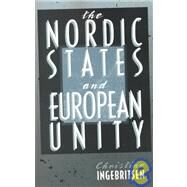The Nordic States and European Unity
, by Ingebritsen, Christine- ISBN: 9780801486593 | 0801486599
- Cover: Paperback
- Copyright: 4/1/2000
The idea of European unity, which the Nordic states have historically resisted, has recently become the foremost concern of Sweden, Denmark, Norway, Iceland, and Finland. Christine Ingebritsen provides a timely analysis of Nordic economic and security policies in the wake of the vast transformation of regional politics between 1985 and 1995. The Nordic States and European Unity addresses two central questions: Why did all five Nordic states trade autonomy for integration after 1985? And why do some follow the British pattern, resisting supranationalism, while others prefer the German strategy of embedding their policies in a common European project? Through extensive interviews with representatives of trade unions, government ministries, parliamentary committees, social movements, and military and industrial organizations, Ingebritsen charts adjustments to the idea of a regional system of governance. She highlights crucial differences among these nations as they seek to protect their borders against new security threats. In particular, Ingebritsen shows how the political influence of leading sectors affects each state's capacity to pursue an integrationist policy. Economic sectors are not uniformly affected by European policy coordination, and the experience of the Nordic states demonstrates this difference. Her work shifts the focus of political economics away from enduring, domestic institutions toward an understanding of institutions as sectoral and transnational.







